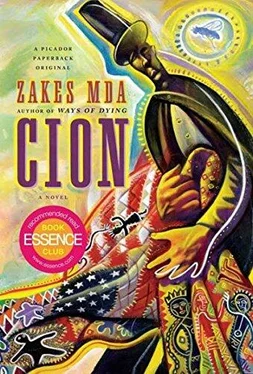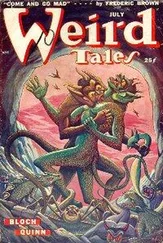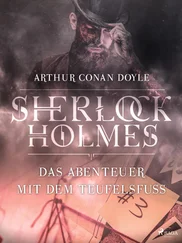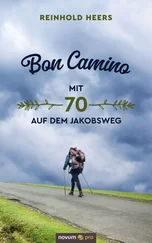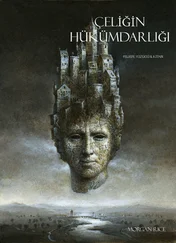I am sitting on a mound, as is my custom, wailing softly as Brother Michael reads the scriptures. He testifies on how Sister Naomi used to be the pillar of the church. People should rather remember her beautiful voice when she sang for the Lord rather than the last days of her life when the Devil tempted and won her soul over.
“But who are we to judge?” he asks in his booming voice. “Who are we to cast the first stone?”
I punctuate these words with squeals borrowed and adapted from Sister Naomi’s own atrocious singing as I remember it that single occasion I went to the chocolate church — when Sister Naomi was still Sister Naomi. Despite my spirited mourning both Ruth and Mahlon pretend that I am not here at all. Not even a glance in my direction. They look fixedly at the coffin as it is lowered in the grave. Mahlon’s smile is even more pronounced. Ruth’s face is expressionless.
Orpah is here too in her shimmering black dress and lampshade hat. She came with me this time. Early in the morning she came to my RV all dressed up and ready for the funeral. It was in blatant defiance of her parents, who decreed after I moved out of their house that the “children” should have nothing to do with me. Orpah has been to my RV almost every day to see if things were all right with me. So has Obed, before he took the Greyhound to Connecticut where he hopes to connect with casino bosses who will give him a few pointers on how to establish one in Kilvert.
He was not very pleased with me when he left yesterday because he felt I was not being helpful in his venture. First of all I had expressed my disapproval when I discovered that his real reason for reclaiming his heritage was that he wanted to have his own casino. He had no qualms about it because he claimed that many other people who had no connection at all to that heritage were reaping millions from it. Why shouldn’t he, a true son of the tribes, get his share?
I made things worse when I refused to go to Connecticut with him to look for Sol Kerzner, a South African who had taken advantage of apartheid laws and established casinos in South Africa’s own black reservations. When he heard that the South African billionaire had subsequently established casinos at the Native American reservations in Connecticut, and these were doing wonderfully both for him and the Native American shareholders, he imagined that if he went to see the man with me things would be much smoother. He argued that I should accompany him to Connecticut because my South African origins would gain us an audience with the man. He brought with him a black striped suit that he found at the Center and suggested that I should spruce myself up and look like a proper businessman.
“I am just a professional mourner, Obed,” I told him. “A billionaire like Kerzner would know nothing about me. Nor would he wish to see me.”
When he left in the morning to catch a bus to Columbus and then another one to Connecticut he did not come to my RV to say goodbye. He could have left after Sister Naomi’s funeral, who was after all some aunt of his, but I supposed he decided to miss my mourning as a way of punishing me. Well, he has missed the new sounds that I have invented especially for this funeral. As the biggest fan of my mourning routine he would have marveled at the way I am able to toss my audience around and then throw them on an emotional roller-coaster depending on the theme of the hymn or on Brother Michael’s readings and preachings.
After the funeral I receive payment from those relatives who believe in the concept of a professional mourner, and congratulations seasoned with references to my purported Egyptian origins. The payment is token, but I do not complain. I am not exactly poor although I do not flaunt my wealth. I made a reasonable fortune from mourning the boring deaths in southern Africa. That is why I am able to travel the world in search of mourning. Now I mourn for the joy of it. For fulfillment rather than remuneration. But then for professional mourning to have any meaning some payment should be made, even if it is only token.
I walk back to my RV, which is parked in the grounds of the Center, thanks to the generosity of the women who have given it a temporary home until I decide what to do next. In return I continue to be useful as a handyman — fixing handles on the cupboard, mopping the floor, loading and unloading foodstuffs, and taking old clothes to the incinerator behind the Center. These are clothes that have been lying around the porch for too long without anyone choosing them. We burn them to make room for new arrivals after selecting those that may be useful as batting for quilts.
Orpah did not want me to move. She pleaded with me to stay. She even cried. Orpah cried for me. Or was she really crying for herself?
She didn’t think I was serious when, at the dinner table one night, I first brought up the idea of moving. All five of us were present when I announced my intentions. Obed was not surprised because I had spoken with him about it already. Mahlon maintained his smile. Ruth wanted to know if I was going back to Africa.
“Ultimately, yes,” I said. “But not yet. I am still in search of mourning.”
Orpah said if there is any search for mourning at all she wants to be part of it. I thought she was not serious. Perhaps it was her way of challenging her parents; of getting back at them; of showing some rebellion. She didn’t think I would actually move. She didn’t think I would take to the road in search of mourning either.
Obed, on the other hand, encouraged the move. He suggested that I buy an RV, which would make my wanderings more comfortable. The idea was worth exploring, though it seemed farfetched at the time. After all, my ways were no longer austere and ascetic as they used to be when I was still a votary who adhered strictly to the self-imposed discipline of my own order of professional mourners. A little comfort here and there would not corrupt my soul.
“What do I do with an RV when I can’t even drive?” I asked.
“I’ll teach you, homey,” said Obed. “It’s easy.”
“I’ll teach you too,” said Orpah.
I couldn’t help thinking that Obed really wanted the RV for himself, to use in some of his scams. Or even to travel to Oklahoma since his mama refused her GMC.
Obed knew exactly who would help us find a good used RV. Nathan.
Nathan was quite open about his motives for helping me find an RV. He hoped I would move out of the house and out of everyone’s life. I had caused enough troubles for the family. If I left, Orpah would surely regain her sanity and would appreciate what he was trying to do for her. He was aiming at the Grand Ole Opry for Orpah. She would surely make it big there because she had added a new dimension to what used to be disparagingly called hillbilly music. With his guidance she could easily be at the Grand Ole Opry. I was misleading Orpah because I was from Africa and did not know what was at stake here. If I left, my evil hold on Orpah would leave with me. And everything would be as it was before. Except for the fact that Orpah would agree to marry him and they would live happily ever after with him managing her lucrative career.
The RV that Nathan found for me was a 1982 Ford Shasta. I went to fetch it from Lancaster with Obed and as we drove back to Athens he assured me that the engine was still very good. I, on the other hand, was impressed by the red-carpeted interior, the refrigerator, the gas stove, the two couches newly covered with pink corduroy fabric, the dining area, the roominess. It was like owning a house.
When I took my suitcase and went to say goodbye to Ruth at her workstation I was surprised when she said she did not want me to leave. If I was going back to Africa she would understand, or at least if I was leaving town altogether. But to vacate her house only to park at the Center was an insult to her.
Читать дальше
